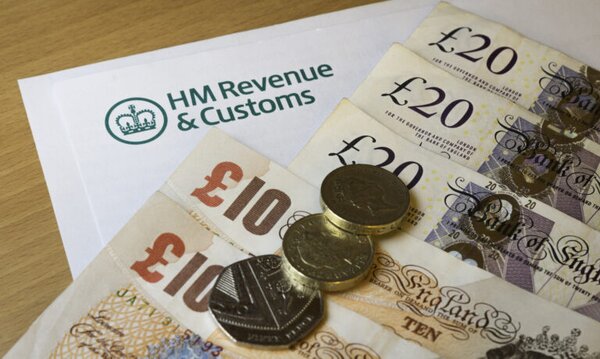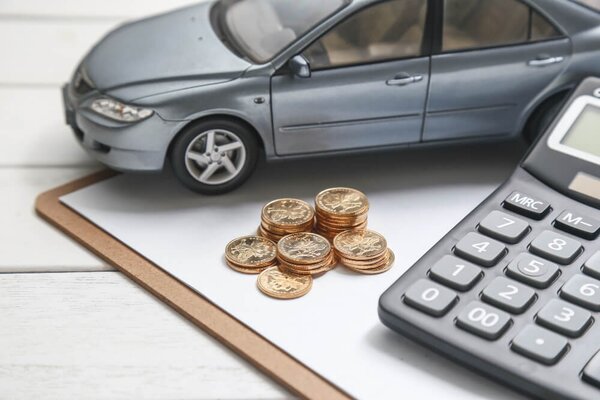Understanding the Impact of a DRO on Self-Employment

A Debt Relief Order (DRO) is a form of debt relief available to individuals in the UK who are unable to repay their debts. It can provide a fresh start by writing off most of your debts after a year. However, for self-employed individuals, a DRO can have significant implications that need careful consideration.
When you enter into a DRO, you must meet specific criteria, including having debts under £30,000 and limited assets. This can be particularly challenging for self-employed individuals who may have fluctuating incomes and assets tied up in their business. Additionally, a DRO can affect your ability to obtain credit and may impact your business operations.
Understanding how a DRO can impact your self-employment is crucial. This article will explore the key areas where a DRO can affect your business and provide guidance on managing these challenges. We'll also discuss how the Pie Tax App and expert tax assistants available on the Pie app can help you navigate this complex situation.
Criteria for a DRO
To qualify for a Debt Relief Order (DRO), you must meet specific criteria. These include having debts under £30,000, assets worth less than £2,000, and a disposable income of £75 or less per month. For self-employed individuals, meeting these criteria can be challenging, especially with business-related assets and variable income.


Impact on Business Credit
A DRO can significantly impact your credit rating, making it difficult to obtain credit for your business. Lenders may view you as a higher risk, which could affect your ability to secure loans, leases, or other forms of credit necessary for your business operations.

In 2023, there were 4.8 million self-employed individuals in the UK. Of these, 30% reported challenges in managing their finances due to fluctuating incomes, highlighting the need for better financial management tools and professional advice to maintain financial stability and control.Self-Employment Statistics

According to recent data, 85% of DRO applications are approved. However, the approval rate drops to 65% for self-employed individuals due to the complexity of their financial situation and business assets. This significant difference underscores the challenges self-employed individuals face in securing approval for debt relief.DRO Application Statistics

Impact on Business Operations
A Debt Relief Order (DRO) can seriously impact your business operations. One key issue is the reduced ability to obtain credit, which may limit your ability to invest in or expand your business. Without credit, managing cash flow, buying necessary equipment, and covering unexpected costs can become difficult, hindering business growth and stability.
Additionally, a DRO imposes strict financial constraints, affecting your operational flexibility. You need to adhere to tight budget limits and regularly report your financial situation, which can add administrative tasks and divert attention from running your business. To effectively manage these challenges and keep your business on track, careful planning and professional support are crucial.
Navigating the DRO Process
Navigating the Debt Relief Order (DRO) process requires careful planning. Start by assessing your eligibility through a review of your financial situation, including debts, assets, and disposable income. This helps determine if a DRO is the right choice.
If you qualify, gather and submit detailed documentation to the Insolvency Service. Accurate reporting is crucial to avoid complications. During the DRO, you must follow the order's restrictions and conditions. Tools like the Pie Tax App can simplify managing your financial records, ensuring compliance and reducing administrative tasks. The Pie app’s expert tax assistants provide guidance and support, helping you manage the DRO while focusing on growing your business.

Debt Relief Orders and Self Employment
The good news is that a DRO should not affect your self-employment status. However, while you will not be required to obtain more stable and predictable employment the DRO may have a cooling effect on your overall business efforts. Here’s how:
If some or all of the equipment you use to conduct your business is not covered by DRO exemptions, you may be required to liquidate it. This includes essential tools and machinery vital for daily operations, which could disrupt your workflow and cause significant business interruptions.You may be forced to liquidate equipment
With a DRO in place, you will be not be able to borrow more than £500 without informing the potential lender. This mandatory disclosure might cause lenders to view you as a higher risk, leading them to reconsider or reject your loan application limiting your ability to secure funding for your business.You will not be able to obtain business loans
As soon as the DRO is issued it becomes part of the public record, available for anyone to see as part of the Individual Insolvency Register. While it is not a certainty that potential clients will discover your name on the Register, it is a possibility and it may negatively influence how they feel about you.Your business will become everyone’s business

Fun Fact About DROs
Did you know that a DRO can only be applied for through an approved intermediary, such as a debt adviser? This ensures that individuals receive professional guidance throughout the process.
Practical Advice for Self-Employed Individuals

Managing a Debt Relief Order (DRO) while self-employed can be challenging but manageable with the right approach. Firstly, it is crucial to maintain accurate and up-to-date financial records. This includes tracking all income, expenses, and business-related assets meticulously. Utilising tools like the Pie Tax App can simplify this process, ensuring you stay on top of your financial situation and remain compliant with DRO requirements.
Secondly, seeking professional advice is highly recommended. Consulting with a financial adviser or tax professional who specialises in working with self-employed individuals can provide valuable insights and strategies tailored to your specific circumstances. These experts can help you navigate the complexities of a DRO, optimise your financial management, and explore potential avenues for business growth and stability. With their guidance, you can make informed decisions and mitigate the impact of a DRO on your self-employment journey.

Maintaining detailed financial records is essential when managing a DRO. Accurate documentation of your income, expenses, and business assets ensures compliance with DRO requirements and helps you make informed financial decisions. The Pie Tax App can assist in streamlining this process by providing tools to track and categorise your financial transactions efficiently.Keeping Detailed Records

Consulting with a financial adviser or tax professional specialising in self-employment can provide tailored strategies to optimise your financial situation. These experts can help you develop a comprehensive plan, manage your business effectively, and explore potential growth opportunities while ensuring compliance with DRO obligations.Seeking Professional Guidance
Summary
A debt relief order can help a person escape the downward spiral of debt and enable them to restore sustainability to their financial situation. But it does not immediately absolve a person of debt and there are potentially negative consequences self-employed individuals considering a DRO need to be aware of.
If your quality of life is suffering due to an unmanageable amount of debt, the best thing to do is to talk to an insolvency practitioner or debt advisor and ask if you qualify for a debt relief order.
Want to keep a closer eye on your finances? Why not try using Pie – the easy-to-use personal tax management app. The Pie Tax App is completely free to use, find out what features are included here:
How is Pie different?
Pie is the only app for self assessment with tools for bookkeeping, your live tax figure, easy tax returns and helpful advice when you need it.
Save £168 per year vs Quickbooks, file your self assessment today for free with Pie
FREE
£89
+£59
£126
Quickbooks
£168
per year7 features
TaxScouts
£169
per year4 features
Accountant
£450
avg per year5 features
* Optional add on
Frequently Asked Questions
What is a Debt Relief Order (DRO)?
A Debt Relief Order (DRO) is a form of debt relief available to individuals in the UK who cannot repay their debts. It involves meeting specific criteria, such as having debts under £30,000 and limited assets.
How does a DRO affect my self-employment?
A DRO can impact your ability to obtain credit, affect your business operations, and impose strict budgetary constraints. Accurate financial record-keeping and professional guidance are crucial in managing these challenges.
Can I still run my business while under a DRO?
Yes, you can still run your business while under a DRO, but you may face limitations in obtaining credit and managing cash flow. It is essential to maintain accurate financial records and seek professional advice.
How can the Pie Tax App help me manage a DRO?
The Pie Tax App can assist in tracking your income, expenses, and business-related assets, ensuring compliance with DRO requirements.
What should I do if I am considering a DRO?
If you are considering a DRO, it is essential to assess your financial situation carefully and seek professional advice. Consulting with a financial adviser or tax professional can provide valuable insights and strategies tailored to your specific circumstances.











